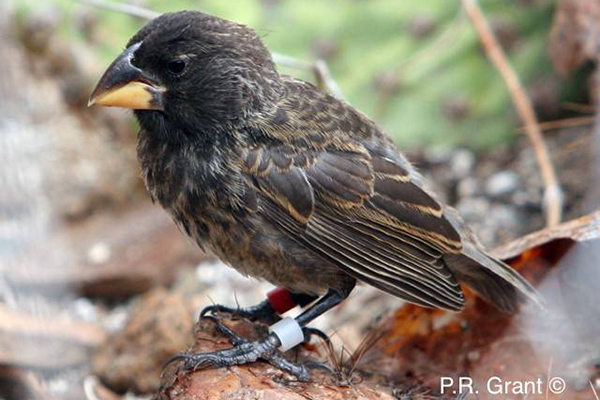
Full Text:
The arrival 36 years ago of a strange bird to a remote island in the Galápagos archipelago has provided direct genetic evidence of a novel way in which new species arise. Researchers from Princeton University and Uppsala University in Sweden report that the newcomer belonging to one species mated with a member of another species resident on the island, giving rise to a new species that today consists of roughly 30 individuals.
The study comes from work conducted on Darwin's finches, which live on the Galápagos Islands in the Pacific Ocean. The remote location has enabled researchers to study the evolution of biodiversity due to natural selection under pristine conditions. A graduate student working on the study noticed the newcomer, a male that sang an unusual song and was much larger in body and beak size than the three resident species of birds on the island. The research team followed the new "Big Bird lineage" for six generations, taking blood samples for use in genetic analysis.Image credit: © P.R. Grant